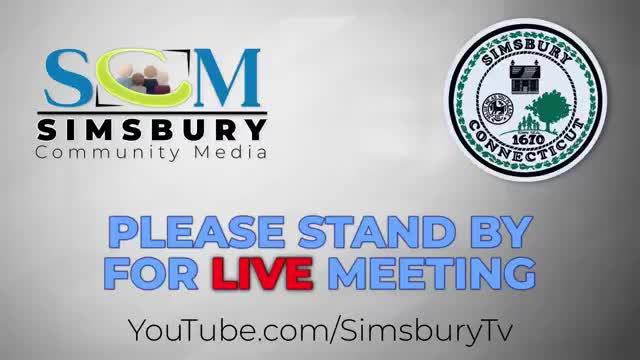Simsbury Zoning Commission directs staff to negotiate contract with FHI Studio for zoning code rewrite
Get AI-powered insights, summaries, and transcripts
Subscribe
Summary
After hearing presentations from three finalist consulting teams, the Simsbury Zoning Commission voted to direct staff to negotiate a scope and price with FHI Studio for a comprehensive rewrite of the town's zoning regulations; final contract will return to the commission for approval.
The Simsbury Zoning Commission on Oct. 6 directed staff to negotiate a contract with FHI Studio to rewrite the town's zoning regulations, after hearing presentations from three consulting teams selected from responses to the town's request for proposals.
The decision came at the end of three back-to-back finalist presentations and a round of commissioner questions. Commissioner Tucker moved that staff be directed to negotiate price and scope with FHI Studio; Commissioner Tony seconded the motion. The commission recorded a 5-1 tally in favor of directing negotiations; commissioners noted that any final contract must still be approved by the commission.
Why it matters: Simsbury's zoning rules guide where and how housing, commercial and reuse projects can proceed, and commissioners said they want a code that aligns with the 2024 Plan of Conservation and Development and with recent Connecticut statutory changes. The rewrite would aim to make the regulations easier to administer, clearer for residents and more legally resilient, while preserving the town's character.
FHI Studio, represented by Ken (principal) and Francisco, presented a Connecticut-focused approach that emphasized a line-by-line code review, a modular rewrite process and a long history of work in Connecticut towns. Ken told the commission the firm recommends an 18-month schedule and said their quote to Simsbury was $124,800 over that period. "Always on budget. Always on budget," Ken said of the firm's record, adding the firm brings in retained land-use counsel as needed and has in-house GIS, urban design and graphic capabilities.
Gohman New York (Justin Lafalin, Donald Poland and Alyssa Fleming) pitched a 15-month, "swift, simple and certain" framework that focuses on making regulations easy for residents, applicants and staff to use. Justin said the firm emphasizes tying regulatory changes to market reality so rules do not unintentionally block development the town wants. Gohman outlined community engagement tools (workshops, surveys, focus groups) and said staff-friendly Word/PDF products with hyperlinks and graphics are central to their deliverable.
A third consultant team led by Molly Gadioso, John Steinmetz and Jacob Robinson (Rochester-based planners) described a comprehensive code-assessment-first approach: identify nonconformities and administrative obstacles, propose a reorganized code structure and use targeted public engagement to build buy-in. They emphasized tailoring the document to the staff capacity that will maintain it and the importance of design graphics and clear process charts.
Commissioners and staff pressed consultants on several recurring topics: how the firms would ensure legal compliance with recent Connecticut public acts and case law, how staff would be trained to maintain and update the document, the number and format of steering‑committee and public engagements, and how to craft districts and standards that preserve town character while enabling desired infill and redevelopment. Ken described a typical working cadence: a line-by-line annotated review returned to staff with 300–500 comments, a prioritized set of issues for commission consideration, and sections redrafted after decision meetings.
Commissioner Tucker made the motion to direct staff to negotiate with FHI Studio; Tony seconded. Chairman Bruce Elliott closed the matter by reminding the room, "There is no contract until the zoning commission approves the contract," and staff confirmed the negotiated scope and price will be returned to the commission for ratification.
Next steps: Staff will negotiate a final scope and price with FHI Studio and bring a draft contract and scope back to the commission for formal approval. If approved, the selected consultant would begin the assessment and rewrite process, including steering-committee meetings, public workshops and draft regulation postings for public hearing.
